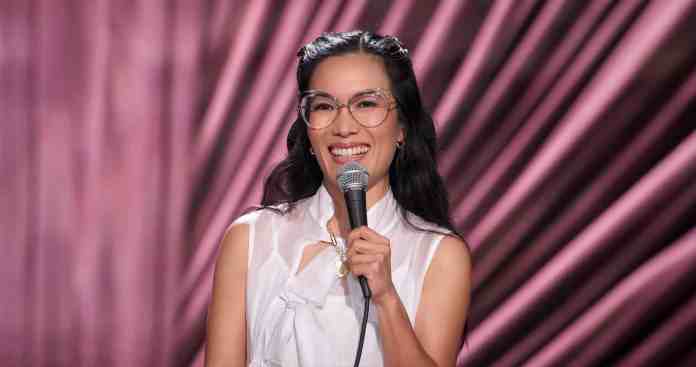
Firstly, it would be great to examine the legends that were used not only to entertain us but also to change the game. These are the icons who, aside from not only breaking the glass ceilings, changed the whole entertainment business by requiring that TV, film, and comedy become more representative of the world: more colorful, diverse, and filled with the voices that matter.

These Black and LGBTQ+ trailblazing artists, either through their courageous and lavishly funny works or by their numerous and highly prestigious Emmy awards, have been unequivocally asserting that they are going to have a place for themselves in the entertainment industry, no matter whether it was already there or not. They accomplished it by proving that representation is not just a word; it is the very thing without which one cannot live in the industry. They have made it possible for the audience to stumble upon the characters and the narratives, which are not only captivating and believable but also happen to be a blend of authentic struggles and authentic victories, thus reminding people of the world that they, too, are entitled to see themselves in the spotlight.

As a matter of fact, some of them are known for making us laugh until we cry, while others have given us performances that have left a mark on us long after the credits have rolled, and a lot of them still use their influence to fight for their cause way beyond the Hollywood industry. They not only did that, but also together they changed the rules of the game and thus set a phenomenal example for the people who want to follow in their footsteps. 8 is the number of TV, film, and comedy figures whose contributions to these areas have changed the face of entertainment forever. Here is the list of those 8 groundbreaking people.

8. Ali Wong
Ali Wong didn’t only make us laugh, she revolutionized comedy. Her 2016 Netflix special, Baby Cobra, was filmed when she was seven months pregnant, and she was the first comedian to have a special while being so advanced in life. The unapologetic honesty about fertility, pregnancy, and motherhood was so revolutionary that the Smithsonian requested that she donate her stage gown. Wong followed Hard Knock Wife by reiterating that humor and motherhood don’t clash at all. She broke open doors for new voices and new conversations in stand-up.

7. Lena Waithe
Lena Waithe is one of the most vital critics working in Hollywood today. She won an Emmy for Master of None and used her acceptance speech as an opportunity to call out queer Black narratives that just don’t get told. Apart from that, she’s had a writing, producing, and activist career, developing shows such as The Chi and Twenties that mirror the lives of communities too often outside of frame. Waithe is living proof that authenticity and visibility can reinvent the rulebook in Hollywood.

6. Michaela Jaé Rodriguez
As Blanca in Pose, Michaela Jaé Rodriguez is the first trans actor to be nominated for a lead role at the Emmys. It wasn’t until that point that she performed a house mother and nurse did her performance radiating compassion, strength, and honesty enough to put trans women of color at the center of mainstream narrative. Rodriguez’s affirmation wasn’t just an award nomination—it was a pivot that changed what audiences and the industry expect from lead roles.

5. Laverne Cox
Laverne Cox’s performance as Sophia Burset on Orange is the New Black continues to be the benchmark for TV. She was the first openly trans acting star to receive a Primetime Emmy nomination, and her character was the first to create a sensation as one of the most prominent and enduring LGBTQ+ characters in television history. Behind the screen, Cox has employed her fame to promote trans visibility and rights and is therefore an icon and an activist.

4. Indya Moore
Indya Moore acted out Angel on Pose, but boldly also led an activist life. Haitian, Puerto Rican, and Dominican by heritage, Moore employs their platform to shed light on the lives of Black and brown queer and trans people. They are not afraid to point out to audiences that representation is not just in the roles on TV, but in the lives the roles represent. Moore’s intersection of art and activism is one to be reckoned with.

3. Tessa Thompson
Cool, magnetic, and unapologetic in all her glory, Tessa Thompson has made a career of breaking molds. She’s done it in Creed, Men in Black: International, and countless other films, but as Valkyrie in the Thor franchise, she solidified her status as Marvel’s first openly LGBTQ superhero. Afro Latina Thompson, who identifies as queer herself, has given voice to marginalized communities and empowered fans who see themselves reflected in her work on and off the screen.

2. Robin Tyler
Well before representation was ever discussed in mainstream culture, Robin Tyler was breaking ground. She produced the first openly feminist comedy album in the ’70s with Pat Harrison and the first openly lesbian comedy album. She was the first to perform openly gay material on national television. Tyler not only brought laughter, but she also opened up space for women and queer comedians to use humor as a way to challenge oppression.

1. Keiynan Lonsdale
Keiynan Lonsdale is rewriting the rom-com hero. Through his cameo in Love, Simon and The Flash and lead role in My Fake Boyfriend, Lonsdale has become a voice for young LGBTQ+ fans who want to be seen on screen in romance stories. Out as his gender and identity, he’s taking it upon himself to mainstream diverse representation in spaces previously ruled by stereotypes. His presence is forcing Hollywood to move in an effort to catch up.

These signs did more than tear down barriers; they swept them away, opening doors to more vibrant, honest stories. They have opened up entertainment, making it more representative and far more impactful.